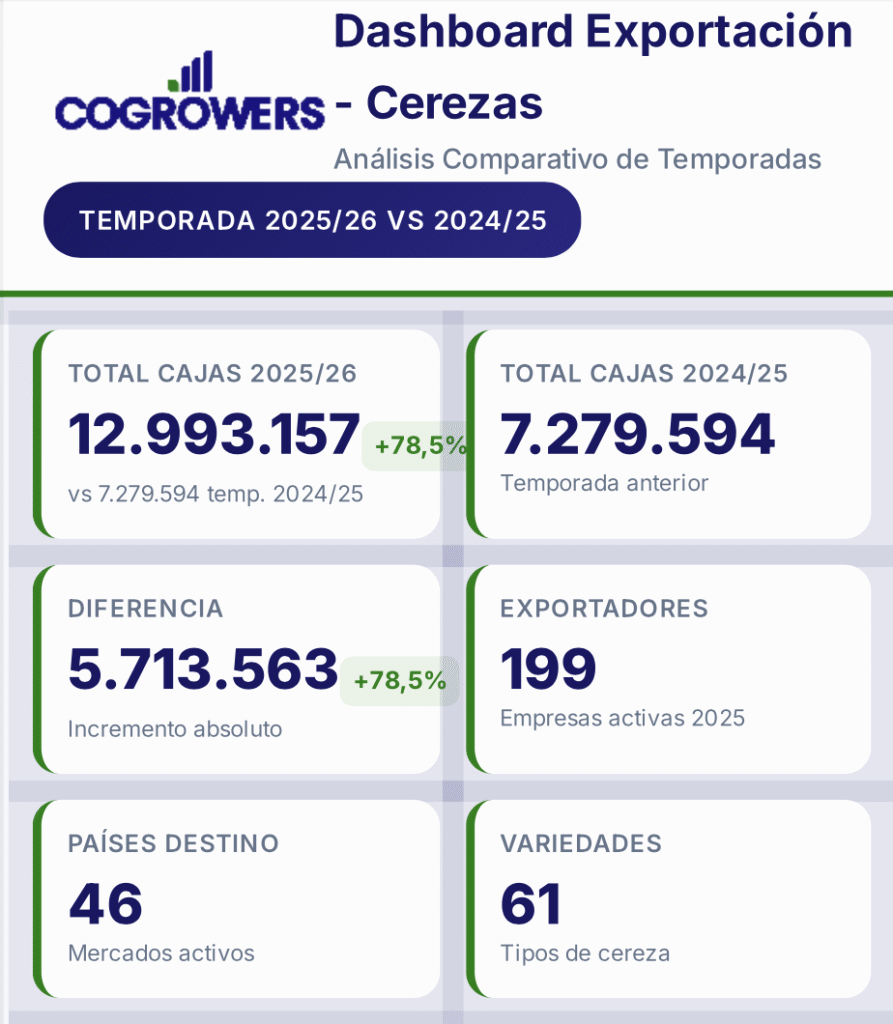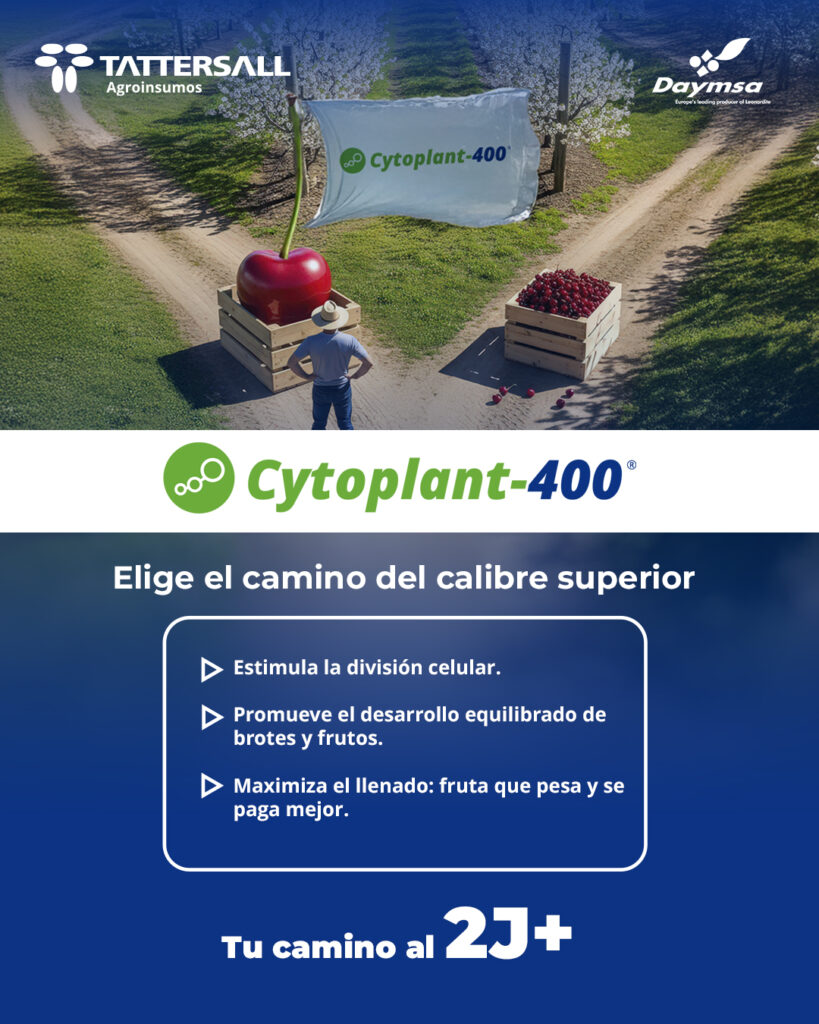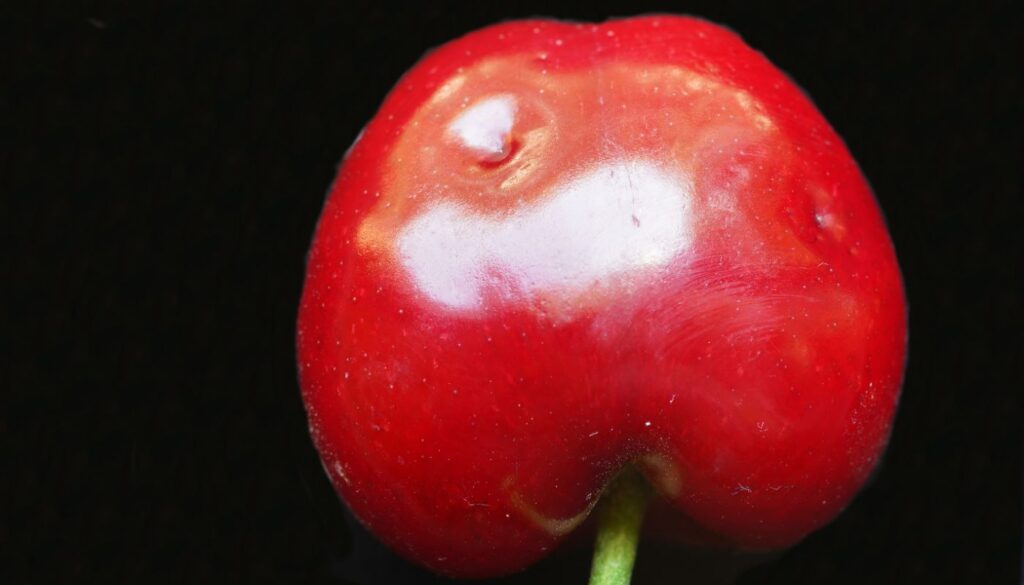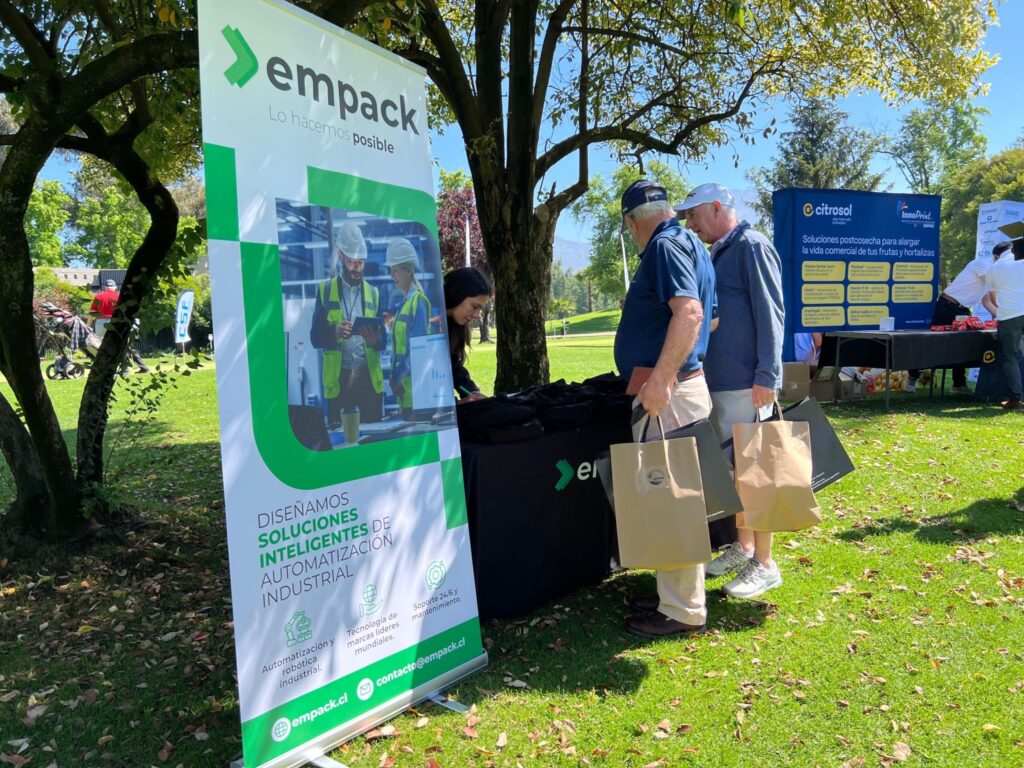The cherry tree is a crop that exhibits a specific adaptation to temperate climates, where exposure to cold temperatures during the winter period is a fundamental requirement for its adequate preparation and development for the following season.

In order to achieve earlier and more economically viable production, an active search for alternative agroclimatic zones is being carried out. These areas present challenges, since they do not always meet the requirements for the accumulation of cold hours necessary for the optimal development of this crop. In addition, the context of climate change must be considered, which manifests itself in extreme temperatures and less cold winters. These adverse factors can significantly interfere with the correct accumulation of cold portions required by the cherry tree for its adequate development and flowering.
Chilling hours are defined as the amount of time during which the plant remains at temperatures below 7 °C. However, it is important to note that when the temperature experiences a significant increase above this threshold, a reduction in the previous accumulation of chilling hours occurs, resulting in a decrease in the value and effectiveness of these accumulated units for plant development.
AGRALIA, a Spanish company specialising in technical agro-textile with a track record of more than four decades in crop protection, has consolidated its position in the industry through a firm focus on innovation. Its constant commitment to solving challenges faced by farmers globally has led to the continuous development of highly innovative products, including Agricooler. This fabric patented by Agralia incorporates aluminium microparticles with the purpose of improving the accumulation of cold hours/cold portions, representing a significant advance in the search for solutions for the agricultural sector.
The aluminium microparticles present in Agricooler block infrared radiation, which is responsible for heat transmission. This blocking property has a highly beneficial effect, as AGRICOOLER acts as an effective barrier that prevents trees from overheating during sunny winter days. This thermal reduction capacity is more effective than conventional black meshes, allowing a significantly higher temperature reduction to be achieved.
| Test tube | Spectrum area (1430 – 770) cm-1 | IR Effectiveness |
| 1 | 18874,359 | 28,9 |
| 2 | 18543,273 | 28,1 |
| 3 | 21988,277 | 33,3 |
| 4 | 21893,797 | 33,2 |
| 5 | 19034,055 | 28,8 |
| Average Value | 30,5 | |
| Standard deviation (s) | 2,6 |
This was confirmed by laboratory analyses carried out at Aimplas, a European reference centre for plastics, located in Valencia. A sample of black 50% shading mesh and a sample of Agrifresh, a fabric also developed by AGRALIA with the same 50% shading, were tested. In this test, the thermal properties of the two fabrics were analysed according to the UNE-EN 13206 standard, which assesses the capacity of fabrics to block infrared radiation.
The results of this trial demonstrated that Agrifresh exhibits a remarkable ability to block 66% of infrared radiation, as opposed to 30% achieved by the black net. These results strongly support the superior efficacy of AGRIFRESH in managing infrared radiation compared to conventional shade nets.
| Test tube | Spectrum area (1430 – 770) cm-1 | IR Effectiveness |
| 1 | 42692,688 | 64,68 |
| 2 | 41479,813 | 62,84 |
| 3 | 44206,813 | 66,98 |
| 4 | 43990,227 | 66,65 |
| 5 | 45886,293 | 69,52 |
| Average Value | 66,13 | |
| Standard deviation (s) | 2,6 |
In order to provide solutions adapted to each area, Agralia produces two different models of Agricooler. These models are characterised by their specific construction: one is closed and has an aluminium exterior and a black interior, while the other model has an open raschel fabric.
The strategic use of technical agro-textile, such as Agricooler, results in the ability to generate optimal microclimatic conditions to favour the development of cherry trees. One of the most notable impacts lies in the increase in the accumulation of cold units, a critical factor for cherry cultivation.









